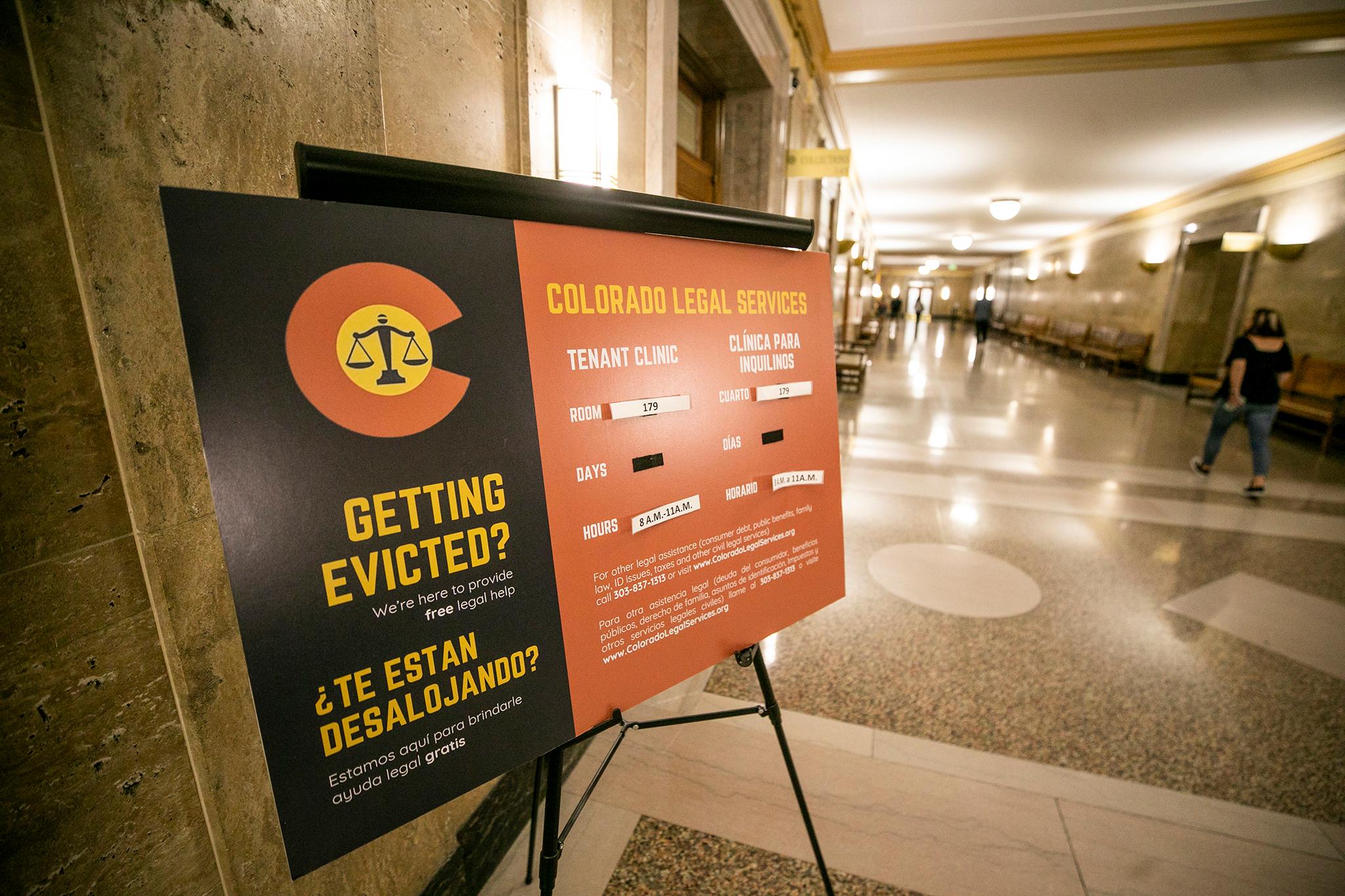Last year, Denver saw record-high eviction cases filed in Denver County Court. Housing insecurity for Denver renters is already worse in 2025.
Despite multiple efforts to keep people housed, higher vacancy rates and slightly lower rents, more households are facing eviction and are being taken to court by landlords than at any time in documented history.
In the first three months of this year, there have already been 4,037 eviction cases filed in Denver County Court — higher than the 3,944 cases in the same three-month period last year.
How did Denver get here?
Prior to the pandemic, Denver saw around 9,000 eviction cases in a normal year, or an average of 2,250 cases in a quarter.
Eviction case numbers plummeted during the pandemic. The Centers for Disease Control and Prevention created an eviction moratorium that limited when landlords could evict tenants.
The federal government also offered financial support to tenants in crisis that aided both renters and landlords hoping to keep people in their homes.
But without those same supports, and with an economy where low-wage jobs and even middle-class jobs make renting in this high-cost market a challenge, eviction numbers have risen mightily since 2023.
In the first three months of 2025, the courts have seen more eviction cases than all of 2020.
The people facing eviction in court represent a fraction of the households that have faced eviction, according to eviction defense attorney Zach Neumann, the head of the Community Economic Defense Project.
Many have likely left their homes before a case went to court, doubling up with other households, couch surfing, moving into their cars, onto the streets or into homeless shelters.
What support does Denver offer?
The supports available to homeless families are lagging behind the need, even as Mayor Mike Johnston is working on his goal to end homelessness in Denver by 2027.
Threats of federal funding cuts, mass layoffs, tumbling markets and what President Donald Trump has acknowledged could be a recession could make the situation more dire.
To ensure Denverites have access to rental assistance throughout the year, the city has limited when emergency rental assistance can be applied to just 24 hours once per month.
Renters are not eligible for the city’s Temporary Rental and Utility Assistance dollars without a landlord’s demand for rent or an eviction notice.
The next window for people to apply for emergency rental assistance goes from April 15 at 11 a.m. to April 16 at 10:59 a.m.
Future dates for applying for help are:
- May 20
- June 17
- July 15
- Aug. 19
- Sept. 16
- Oct. 21
- Nov. 18
- Dec. 16
“Funding is not guaranteed,” the city says on its website. “Applicants may not receive all types of assistance requested in the application … Not all eligible households who apply for TRUA will receive assistance.”













